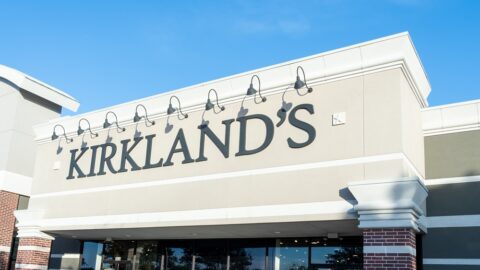Retail payment is undergoing a makeover in the form of Bitcoin, a digital currency that can be generated — or “mined” — by setting up software on a computer that decrypts blocks of code, which then creates the currency and manages all transactions completed using the currency.
Since Overstock announced that Bitcoin would be accepted as a payment option on its e-Commerce site, the digital currency is now being spotlighted as a potential disruptor in the payment space. As a result, analysts and experts are questioning whether Bitcoin and other types of digital currency will evolve from a fad to a business necessity for retailers moving forward.
Two Las Vegas casinos also recently announced the acceptance of Bitcoin for payment: The D Las Vegas Casino Hotel and Golden Gate Hotel & Casino. Other businesses currently accepting Bitcoin include: the Sacramento Kings basketball team, OKcupid.com and WordPress.com.
Bitcoin presents a financial benefit because it provides retailers with a payment option that has lower fees compared to the charges associated with credit card transactions. Also, one of the biggest attractions of Bitcoin is the untapped market where a very limited number of merchants currently accept the currency, according to Patrick M. Byrne, Chairman and CEO of Overstock.com.
“There are large numbers of Bitcoin holders who are eager to patronize firms that will accept this form of payment, but so far, their options have been limited,” Byrne said in the CNBC column. “I believe that by being the first major online retailer to accept Bitcoin, we will tap into a significant group of loyal consumers, and as a result, our share of the overall market will grow.”
On the first day of Bitcoin acceptance at Overstock.com, the online discount retailer transacted $126,000 in Bitcoin sales, according to Wired. These results confirm the digital currency opportunity is very real.
However, industry experts remain skeptical. Bitcoin is “more of an investment opportunity than a real retail currency,” according to Andrew Morris, CEO of Morris Advisors Inc., in an interview with Retail TouchPoints.
“There is a very specialized set of retailers that would show an interest in Bitcoin, and it could be used as a means to generate public relations for a business,” Morris said. “But we’re not at a point where online retailers — in a broad sense — are seriously considering accepting Bitcoin.”
Challenges Of Digital Currency
While digital currency shows great promise, it also presents specific challenges. One of the potential drawbacks is the fact that the value of digital currency is constantly changing, similar to how the price of stock market shares rise and fall on a daily basis.
“In all honesty, Bitcoin is a curiosity more than anything else,” said Larry Berlin, Vice President of First Analysis, in an interview with Retail TouchPoints. “It’s not clear to me — as an analyst — and I think it’s not clear to most potential users where the value is.”
However, Overstock stated in a press release that the retailer has partnered with Coinbase — a Bitcoin payment processing company — in order to finalize the payments in real time. This will ensure that consumers don’t see value changes occur in the middle of the purchasing process.
Bitcoin’s success thus far shows promise. However, this does not mean that Bitcoin will be “the crypto-currency” of the future, according to James Wester, Research Director of Global Payments at IDC, in an interview with Retail TouchPoints. He stated that Bitcoin may not be prominent in the near future, but the concept behind it will continue to grow.
“What’s exciting about all of this is the theory of what a digital currency can bring to the industry,” Wester said. “[Bitcoin] has a certain level of anonymity, it clears and settles within minutes, and does things that we don’t get to see happen in the payments space. If the theoretical worked out in the real world, a lot of exciting things would happen.”
Should digital currencies like Bitcoin continue to be accepted and disrupt the retail industry, credit card companies are the “obvious candidates” to compete against them, according to Berlin. However, Berlin added that we “have to see general acceptance amongst consumers” before we can consider Bitcoin a major threat.
“If Bitcoin were to become widely accepted, the big name credit cards — and the banks that issue them — their role will become questionable,” Berlin said. “I think we are a long way from this happening, but it’s more of a concern to keep an eye on.”
In the end, it is too early in the game for Bitcoin to cause major disruption in the payments industry. But the theory and concept behind a widely accepted crypto-currency will allow Bitcoin — and other digital monies — to continue growing in popularity.












